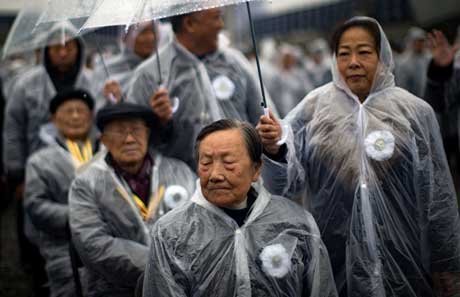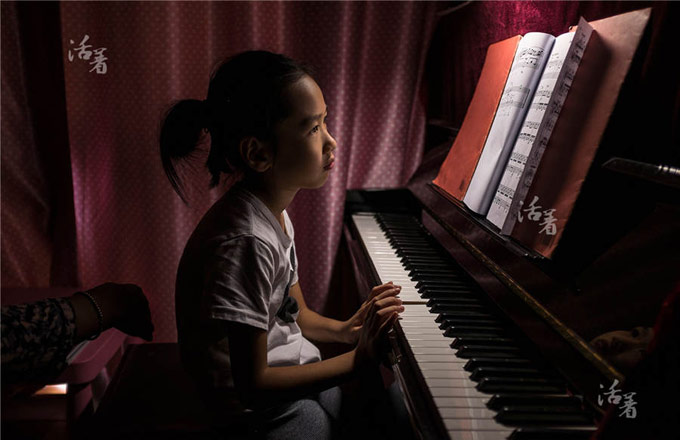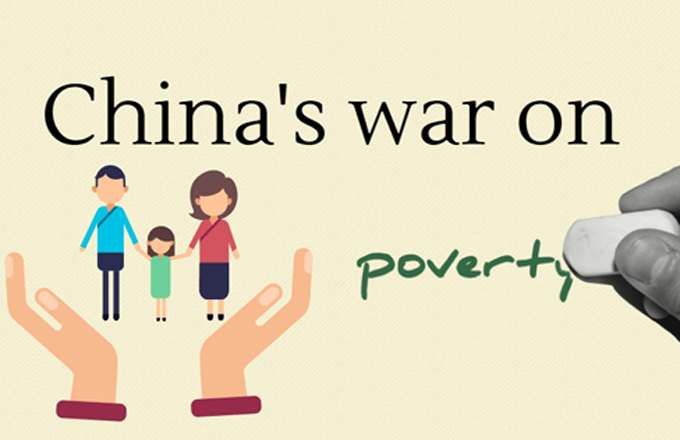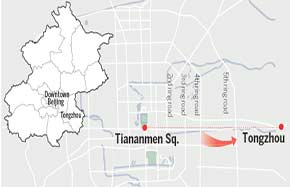Two-child policy could see rise in deaths during pregnancy
|
Pregnant women line up for health checks at Jinan Maternity and Child Care Hospital in Jinan, Shandong province, in March. Thirty percent of mothers-to-be visiting the hospital are expecting their second child, according to hospital sources. Zhao Xiaoming / Xinhua |
Experts are warning that the country's new family planning measures could have unintended, but far-reaching, consequences. Wang Xiaodong reports.
In recent years, the treatment of pregnant patients has become an increasingly thorny task for Liu Wenxian, a cardiologist at Anzhen Hospital in Beijing, as a result of the rise in the number of older women wanting to give birth.
"Many of these women are from outside Beijing and have risky complications such as cardiac disease," she said.
"The problem has worsened since the adoption of the universal two-child policy because these complications are more commonly seen in pregnant women who have given birth before. In many cases - especially when the patient's condition is critical - we have to re-evaluate their decision to have a baby and end the pregnancy promptly to save their life," she said.
Gu Hong, a pediatrician at the hospital who specializes in treating cardiac disease in babies, warned that the two-child policy could have unintended, but far-reaching, consequences: "We are facing some very harsh challenges. Many women are trying their best to have a second child, even if conditions such as cardiac disease could put them at high risk."
According to Gu, seven pregnant women have died in the hospital in the past five years as a result of cardiac complications, and those risks still exist despite improvements in medical technology.
Anzhen Hospital is not alone in facing such a challenge.
According to the National Health and Family Planning Commission, in the first half of the year China's maternity mortality rate reached 183 per 1 million people, a rise of more than 30 percent compared with the same period last year.
Mortality rate
Maternity mortality rates had been declining steadily in China until the end of last year, when the top leadership approved the adoption of the universal two-child policy to tackle the problems posed by the nation's rapidly aging population. As a result, the decades-long family planning policy, which limited most couples to one child, was relaxed.
Last year, the mortality rate during pregnancy fell to 201 per 1 million people from 300 per 1 million in 2010, according to the commission, but the figure is now rising.
"The rise in the number of pregnant women, particularly those at higher risk such as older women, resulted in a rise in maternity deaths in some parts of the country in the first half of the year," said a statement released by the commission in October.
The NHFPC estimates that more than 3 million women at higher risk will fall pregnant in China every year between the start of next year and 2020, a rise of 30 percent from the period before the adoption of the two-child policy. The commission said: "This will cause increased risks in maternity complications and present challenges to treatment and recovery."
The number of babies born in the first half of the year was 8.31 million, a rise of 6.9 percent over the same period last year, a significant increase despite the declining number of married women of fertile age, the commission said.
In addition, the sudden rise in pregnancies has resulted in maternity services coming under greater strain, and both facilities and hospital staff are under-resourced, according to the commission.
Of the 90 million women now eligible to have a second baby, 60 percent are age 35 or older, which means they are considered to be at higher risk during pregnancy, the NHFPC said.
Gu said about 150 pregnant patients with cardiac complications were received by Anzhen Hospital last year, compared with approximately 110 in 2011. This year, the number is expected to surpass 180.
Acting on traditional beliefs, many women are opting to have another child, according to Gu: "Many of these patients are seeking treatment and care in our hospital, but not all women are suitable for pregnancy. Women with serious conditions are very likely to give birth to an unhealthy child, and their own lives could also be threatened during childbirth."























